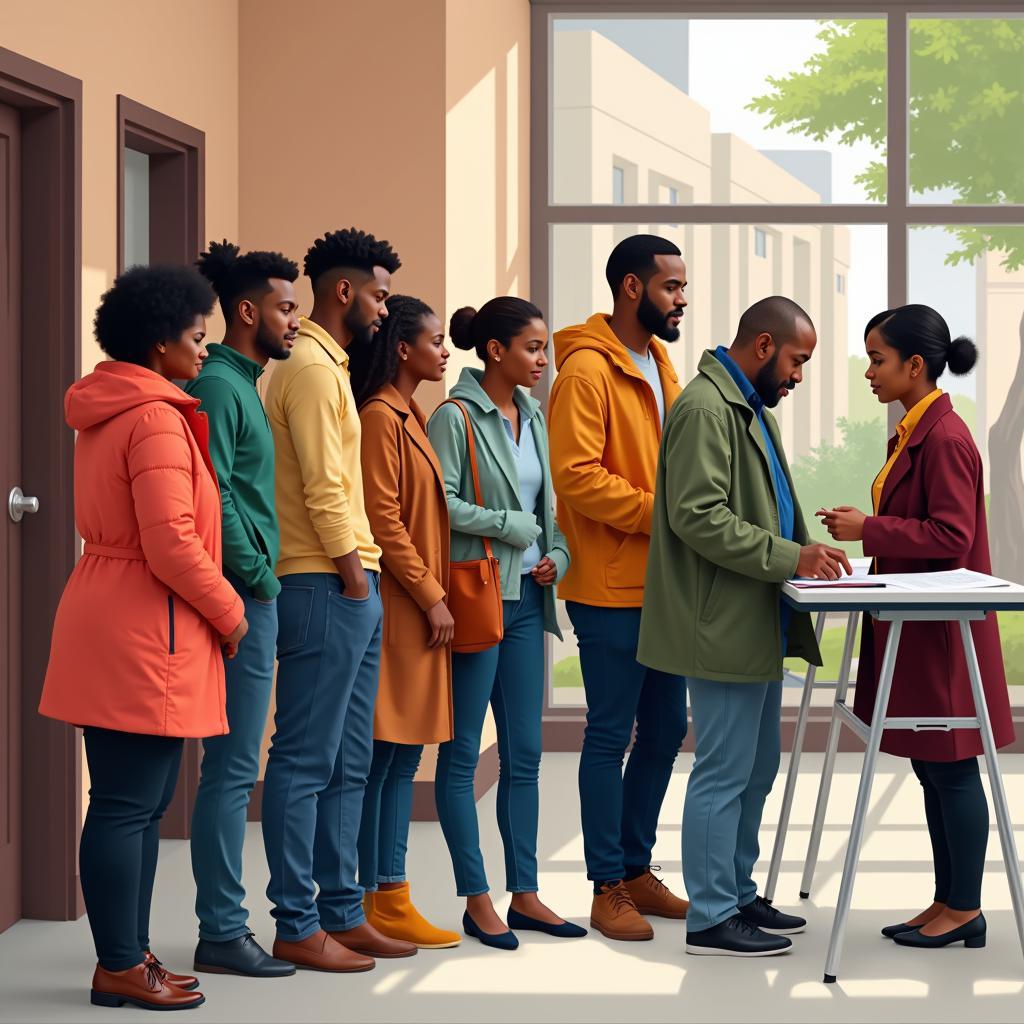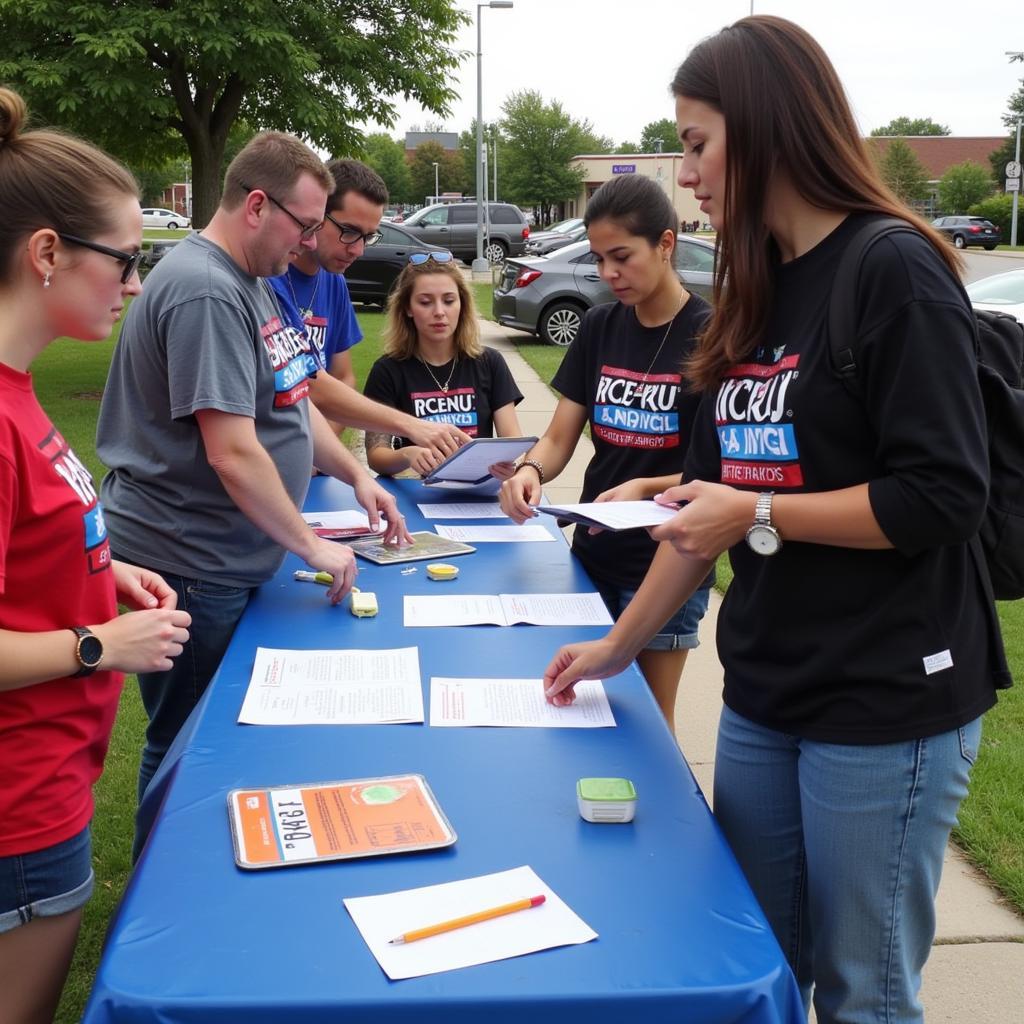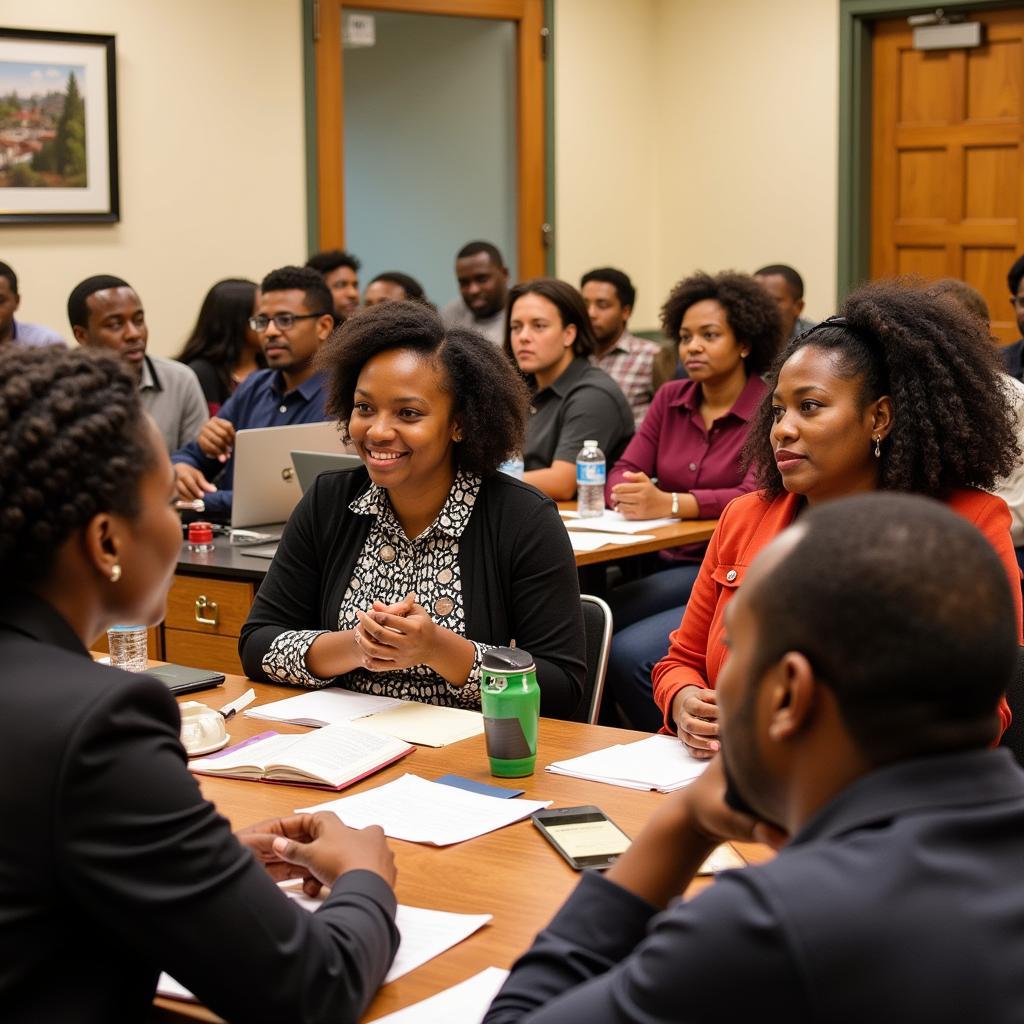The Power of the African American Vote
The African American Vote has played a pivotal role in shaping the political landscape of the United States. From the Reconstruction era to the present day, the struggle for voting rights and the exercise of that right have been central to the pursuit of equality and justice. This article explores the historical context, contemporary challenges, and enduring significance of the African American vote.
For generations, African Americans fought tirelessly to secure their right to vote, facing systemic discrimination and violence. Learn more about African American right to vote. The Civil Rights Movement of the mid-20th century witnessed landmark legislative victories, including the Voting Rights Act of 1965, which aimed to dismantle discriminatory voting practices. However, the fight for voting rights continues today, as new challenges emerge in the form of voter ID laws, gerrymandering, and other restrictive measures.
Understanding the Impact of the African American Vote
The African American vote has been instrumental in electing numerous candidates at all levels of government, from local school boards to the presidency. This demographic wields significant political power, particularly in key swing states. Their participation in elections can significantly influence policy decisions and shape the direction of the country.
Why is understanding the African American vote so crucial? Because it reflects the unique experiences, perspectives, and priorities of a community that has historically been marginalized and underrepresented. Their voting patterns offer valuable insights into the political climate and the effectiveness of outreach efforts by various parties and candidates.
African American Voter Turnout: Trends and Challenges
Analyzing African American voter turnout reveals important trends. For example, African American voter turnout 2008 saw a historic surge, driven in part by the candidacy of Barack Obama. However, turnout rates have fluctuated in subsequent elections. Understanding these fluctuations and the factors that influence them is critical for political strategists and advocates working to mobilize voters.
 African American voters casting their ballots at a polling station
African American voters casting their ballots at a polling station
What are the biggest challenges facing African American voters today? Obstacles such as restrictive voter ID laws, limited polling locations, and confusing registration processes can disproportionately affect African American communities, suppressing their ability to exercise their right to vote.
The Legacy of the Struggle for Voting Rights
The fight for the African American right to vote amendment is a testament to the resilience and determination of the African American community. From the abolitionist movement to the Civil Rights Movement, countless individuals risked their lives and livelihoods to secure this fundamental right.
“The right to vote is not just a privilege; it is the cornerstone of democracy,” says Dr. Amani Jackson, a renowned historian specializing in African American history. “The struggles and sacrifices made to achieve this right should never be forgotten.”
The Future of the African American Vote
What does the future hold for the African American vote? As demographics shift and new issues emerge, understanding the evolving political priorities of this community will be crucial for shaping future electoral outcomes. Continued efforts to ensure equal access to the ballot box and to address systemic barriers to voting are essential for a truly representative democracy.
 Volunteers assisting people with voter registration at a community event
Volunteers assisting people with voter registration at a community event
“Empowering the next generation of African American voters is not just about politics; it’s about ensuring that their voices are heard and their concerns are addressed in the halls of power,” adds Dr. Jackson.
The Role of Civic Engagement
Beyond voting, civic engagement in the form of community organizing, advocacy, and political activism plays a vital role in amplifying the voices and concerns of African American communities. These forms of participation are crucial for holding elected officials accountable and driving positive change.
African American voter turnout is a complex issue with a rich history and ongoing challenges. Learn more about African Americans vote share in mid term.
 Community members discussing local issues and political strategies
Community members discussing local issues and political strategies
“The struggle for voting rights is not over,” states community organizer, Ms. Imani Davies. “We must remain vigilant and continue to fight for equal access and representation for all.”
In conclusion, the African American vote holds immense power and significance in the American political landscape. Understanding its historical context, current challenges, and future potential is crucial for building a more just and equitable society. The ongoing struggle for voting rights and the continued exercise of this fundamental right are essential for ensuring that the voices of African American communities are heard and their concerns are addressed.
FAQ
- What is the significance of the Voting Rights Act of 1965?
- How has gerrymandering impacted African American voters?
- What are some current initiatives aimed at increasing African American voter turnout?
- How can individuals get involved in promoting voter registration and participation in their communities?
- What are the potential consequences of voter suppression tactics?
- What role do historically Black colleges and universities (HBCUs) play in voter registration efforts?
- How can young African Americans be encouraged to participate in the political process?
For further assistance, please contact us at: Phone: +255768904061, Email: [email protected], or visit our office at: Mbarali DC Mawindi, Kangaga, Tanzania. We have a 24/7 customer service team ready to help.